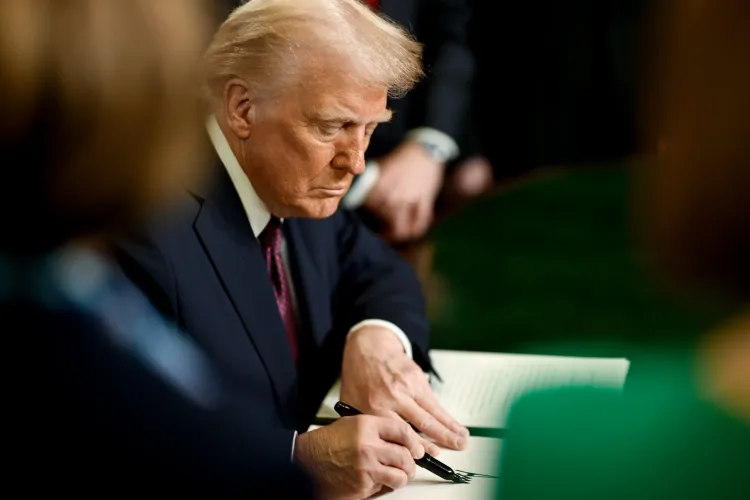Are 15 US States Challenging Trump's Executive Order to Fast-Track Fossil Fuel Projects?

Synopsis
Key Takeaways
- 15 states are challenging Trump's executive order.
- The lawsuit claims the order violates emergency powers legislation.
- Trump's order is said to favor fossil fuels over renewable energy.
- The case could have significant implications for energy policy in the US.
- Multiple environmental laws are reportedly being bypassed.
San Francisco, May 10 (NationPress) A group of 15 US states has initiated a lawsuit against President Donald Trump’s executive order that proclaims a “national energy emergency,” intended to expedite fossil fuel projects.
Washington State Attorney General Nick Brown announced this legal challenge on Friday during a press conference. The 61-page lawsuit was filed in the US District Court for the Western District of Washington.
The complaint asserts that Trump’s order breaches the National Emergencies Act of 1976, which mandates that presidents utilize their emergency powers “only when actual emergencies exist” and not for “frivolous or partisan matters.”
The lawsuit states, “Prodded onto the shakiest of limbs by the President's unsupported and unlawful Executive Order, multiple federal agencies now seek to broadly employ these emergency procedures in non-emergency situations.”
Brown labeled Trump’s emergency declaration as “fake,” noting that US energy production has reached unprecedented levels, according to reports from Xinhua news agency.
He added, “This is not a serious or lawful effort by the president. It is all about eliminating competition and shackling America to dirty fossil fuels forever.” This statement was made during a news conference in Seattle.
Trump issued the executive order on his first day back in office this year. It advocates for the growth of oil, gas, coal, and other fossil fuel sources, while specifically excluding wind, solar, and battery-based energy initiatives.
In the executive order, Trump stated, “Our Nation's current inadequate development of domestic energy resources leaves us vulnerable to hostile foreign actors and poses an imminent and growing threat to the United States' prosperity and national security.”
The lawsuit claims that federal agencies have begun to circumvent or lessen environmental review requirements under laws like the Clean Water Act, the Endangered Species Act, and the National Historic Preservation Act.
This legal action seeks a judicial ruling to nullify the executive order and to prevent federal agencies from issuing expedited permits based on it.
The states participating in the lawsuit include California, Arizona, Connecticut, Illinois, Massachusetts, Maine, Maryland, Michigan, Minnesota, New Jersey, Oregon, Rhode Island, Vermont, and Wisconsin.









